#asian jim
Text
Jim and Dwight Prank Todd Packer - The Office
https://PrankVids.com jim,and,dwight,todd packer,david koechner,jim and dwight pranks,michael prank,the office pranks,that’s what she said,fire drill,asian jim,did i stutter,no god no,theme song,funniest office,office jim,office dwight,office michael,office clips,watch office,Entertainment,TV Series,Celebrities,Comedy,Funny,Hilarious,Comedian,the office,office nbc,full…

View On WordPress
#and#asian jim#best moments#bloopers#celebrities#comedian#comedy#cpr#david koechner#did i stutter#dunder mifflin#dwight#entertainment#fire drill#full episodes#funniest moments#funniest office#funny#hilarious#jim#jim and dwight pranks#michael prank#no god no#office clips#office dwight#office jim#office michael#office nbc#parkour#pranks
0 notes
Text
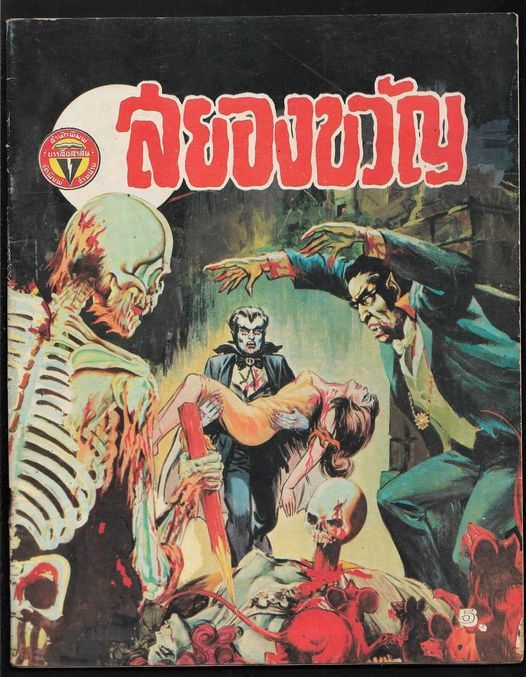
A Thai reprint of Warren's CREEPY.
I think these were published by Sam Inter in the early / mid 1980s, but info on this is hard to dig up.
#creepy#horror#horror comics#warren comics#vintage horror#pulp horror#comics#pulp#pulps#horror art#pulp art#gothic horror#thai comics#thai horror#jim warren#70s horror#1970s horror#bronze age#bronze age comics#80s comics#asian comics#asian horror
48 notes
·
View notes
Text
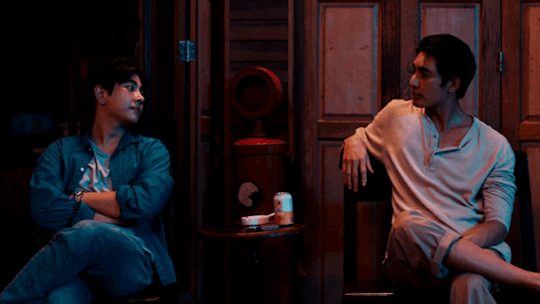
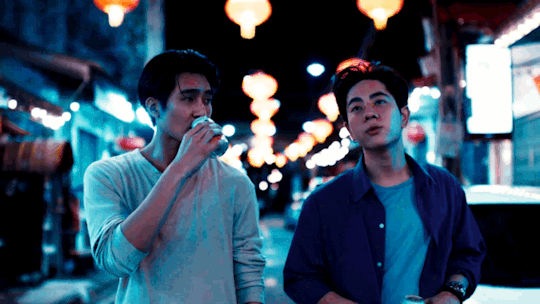
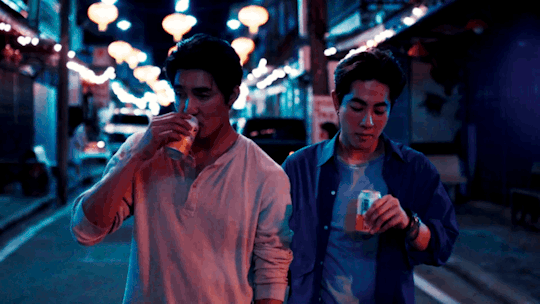
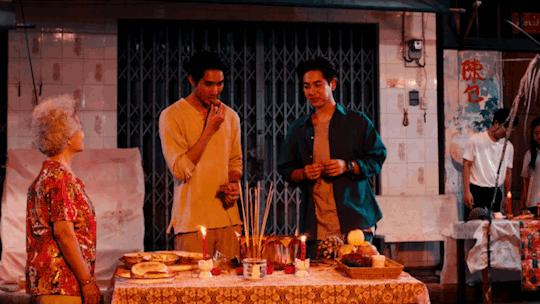
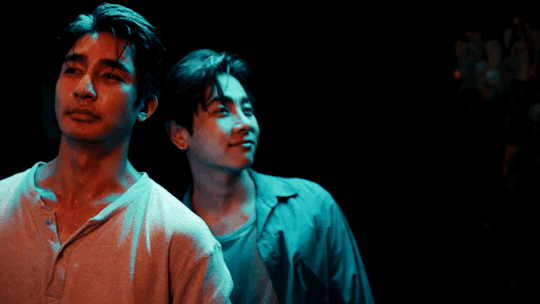
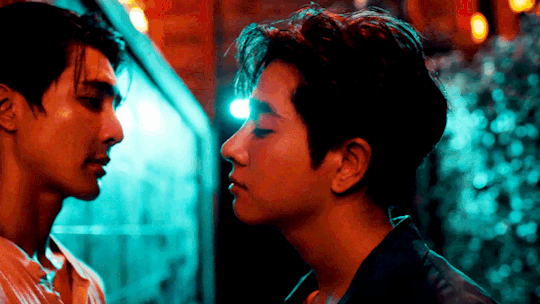
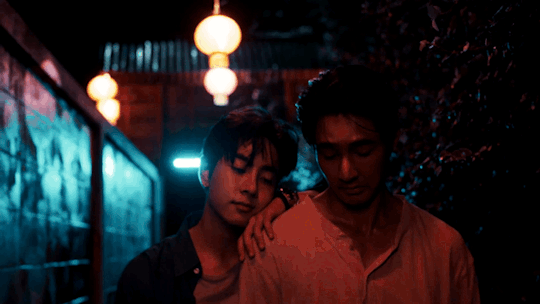
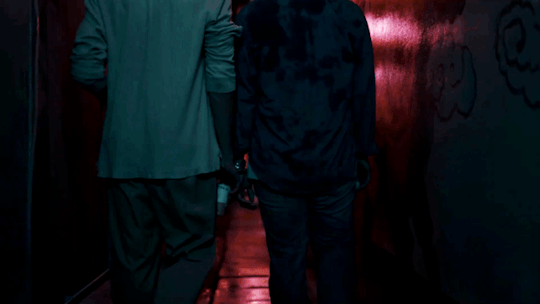
I loved watching the space shrink between them as they moved, the way they smiled at each other, they way they filled the gap with motions and touch, the way they're both just radiating these different kinds of loneliness that need to be filled but also the walls and the people and the relationships that hold them back from filling that spot, that aching spot, that they cannot forget. (one beer a night, after everyone else has gone, one beer alone and that's all he has)
#moonlight chicken#moonlight chicken the series#wen x jim#jim x wen#wenjim#jimwen#gmmtv#thai ql#bl series#thai drama#bl drama#thai bl#thaibl#asianlgbtqdramas#asian lgbtq dramas#asianlgbtqdrama gif#thai series#ql drama#ql series#asianlgbtqdramas gif#asianlqbtqdramas#asian lgbtq drama gif#asian lgbtq drama#i like them more than i expected#i think it's the loneliness
167 notes
·
View notes
Text



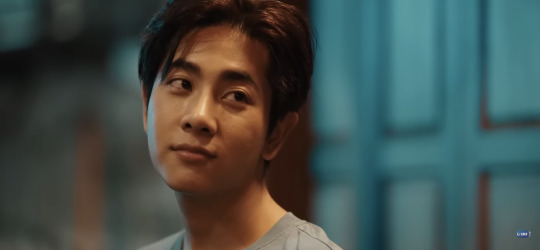

The ‘please just fuck me again’ eyes. Last one is my personal favorite🥺
#thai bl#moonlight chicken#moonlight chicken ep 2#earthmix#earth pirapat#mix sahaphap#jim x wen#asian lgbtq dramas#gemini x fourth#heart x li ming
117 notes
·
View notes
Text


-¿Por qué nos besamos?
-Estoy intentando conocerte mejor.
#Jung Yi Won & Jim Ji Oh#why r u#why r u the series#why r u korean#love#lgbtlove#bl series#bl drama#asian lgbtq dramas#asianlgbtqdramas#bl ships#bl shows#bl story#asian boy#asian bl series#asian bl drama#korean artist#korean#korean actor#korean show#korean bl drama#korean bl series#kbl#kissing#relationship
7 notes
·
View notes
Text
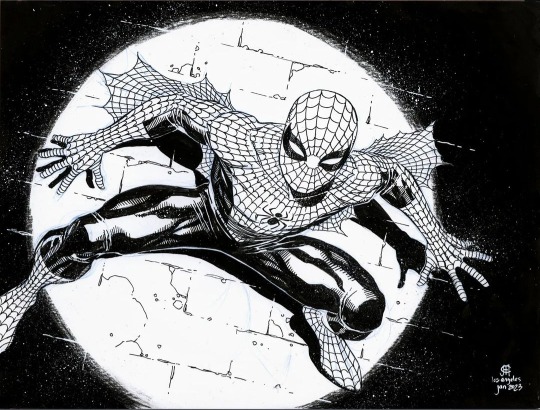
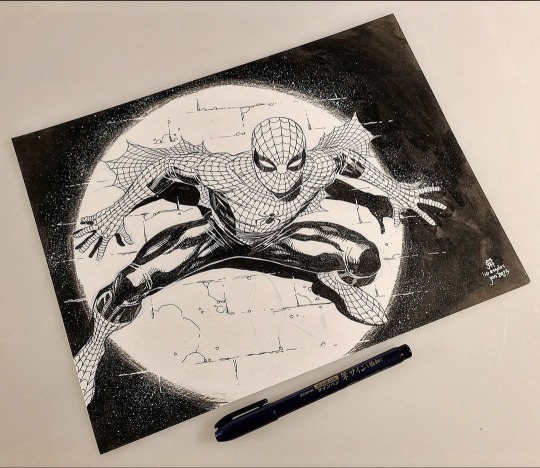
Spider-Man by Jim Cheung
you can bid on this piece in the comment section of Cheung's Instagram post
Funds from the campaign will go to the Monterey Park Lunar New Year Victims Fund
#jim cheung#stop asian hate#stop aapi hate#fundraiser#fundraising#spider-man#marvel#gun violence mention#gun violence tw#tw gun violence#gun violence cw#cw gun violence
68 notes
·
View notes
Note
Hi! I wanted to first of all say I've deeply enjoyed what you've written about various shows, especially your observations, meditations, insights, etc. around family dynamics, intergenerational trauma, etc. For MLC, I've been chewing over some parts of Jim and Li Ming's relationship. It was interesting to see how quickly their interactions became positive and easy after that post-funeral conversation and understanding, and it made me think that their relationship probably had a good foundation, that we met them at a time where it was strained and deteriorating to a crisis point, but since they were able to resolve their conflict they could return to and even build on the baseline they already had. I've thought about the way Jim and Li Ming are so similar being part of the reason they clash so much. I've thought about the way the past casts such a long shadow in Jim's heart. I've thought about how Jim said he and Jam ran away from home when they were Li Ming's age. There is a thing I've read and heard brought up by therapists and even seen discussed in parenting advice columns, where someone will experience something traumatic when they are young, and they'll grow up, be raising children, and when the children reach the same age they were when they experienced The Thing, the trauma can come roaring back in a big way. I wonder if that period in Jim's life--running away young and trying to eke out a living--was particularly hard/traumatic, and if Li Ming entering that same stage in life, with its very similar concerns of poverty and queerness (plus the pile-up of stressors we see happen in the show) is part of what's activating so much fear and overwhelm in Jim. There's a distinct quality to Jim in the worst of these fights where it seemed to me like he wasn't fully present, that the shadow cast by those past fears and hurts was just so very strong in those moments it was overwhelming. (I also think a lot about the fact that he refuted Jam's attempt to place blame on Li Ming being gay on himself, and refuted it being wrong or blameworthy at all, but then confided in Wen that he couldn't help but blame himself--that ambivalence of refuting the Wrong Idea on the one hand but deep down worrying that the Wrong Idea might be true was, in form if not in specific content, astoundingly relatable to me, I felt such overwhelming empathy for Jim there, but that's a different conversation) It was noticing this about Jim's arguments, and Jim's comments about him and Jam running away around Li Ming's age, that set me on this particular path of reflecting. That, and seeing how quickly things got better for them after some breakthrough communication... I thought if things could so quickly turn out this well, surely their baseline must have been better than the dynamic with which we were introduced to them--how and why, then, did it get so bad? I dunno, I just thought this could be one of the pieces of the puzzle of Why Jim Was Being Like That. Anyways, thanks for reading and being your awesome self <3
Oh, dearest Anon. Thank you so much for the wonderful feedback, and for this beautiful write-up, which isn't really an ask, but actually a FABULOUS STANDALONE ANALYSIS -- I'm deeply touched you directed it my way, my heart is so full. (This is going to be a long response.)
You know me well (thank you for reading along, dear Anon!), and I was just thinking about this during dinner last night. I was thinking more on @wen-kexing-apologist's wonderful post, "Moonlight Chicken Is for the Queers," and why I'm so drawn in particular to Asian QL content, even though I'm a cishet mama.
I feel like I've been waiting my whole life for drama content about Asian families, created as intelligently and CRITICALLY as P'Aof and his related group of directors and screenwriters have done over the last few years. Watching these shows -- even though I am not queer -- is like art therapy for me. As a child of Asian immigrants, my sibs and I went through a lot, a lot. I'm reckoning with this shit now as a parent, maybe even à la Jim and Li Ming. I can totally relate to traumatic stuff from my past bubbling up in the course of my parenting -- the way I TALK to my kids, the way I interpret something they're doing as annoying, or (EVEN WORSE) them doing something "on purpose to annoy me" -- when in fact, my kids are being totally normal for their age. I have to check myself every second of every day, and it's exhausting.
We -- all of us as an audience -- I think, are very lucky to be watching this art at this moment in time. Even with the context of this material being set in a QL, I'm seeing other non-QL GMMTV shows tackle huge trauma issues (like 10 Years Ticket, which I highly recommend, and I can't wait to start on The Warp Effect, too, which I know is QL-ish). While the context of a QL provides a framework and structure around stories that feature minority figures, I believe that P'Aof and the other amazing GMMTV artists are saying something in their shows about the Asian cultures that I am from and relate to. The Asian family unit is A -- if not, THE -- dominant framework of an Asian individual's perspective on life, for their lives. I'm American, so I absolutely have grappled with this Asian family collectivist vision and the inherent contradiction of living in individualistic America. But that's why I watch these shows, and can even relate to the struggles of queer characters in these shows, even without being queer. Because being "different" in the Asian family unit is just DIFFICULT, no matter how you slice it. (I was different because... I wanted to stand up to my parents, which was not acceptable, no way, no how.) And perceptions about the Asian family unit absolutely bleed into general Asian societal viewpoints as well.
Anyway. My desire to learn more about families and who we are vis à vis family frameworks actually led me to my career, ha. With that in mind, a couple of other response points:
1) If you (or anyone out there) ever plan on becoming a parent, I would HIGHLY RECOMMEND reading an amazing book called "Parenting From the Inside Out" by Dan Siegel. In fact, I'd probably just recommend this book to anyone who wants to get to know THEMSELVES at any point in their lives, children or no children. The book essentially says: if you don't reckon with your past, and how you were raised, and how you developed and REACTED to that experience -- you will miss out on opportunities for real self-actualization as a parent and as an adult.
Anon, you mentioned that at times, Jim didn't seem to be "fully present" in fights with Li Ming, and I totally agree with that read. I want to note that being "fully present" is like "enlightenment" to me. It is an ideal state that is tremendously difficult to achieve, especially in the minute day-to-day life of a parent, whether you're a parent to a young OR an old child.
In that context, you are so very right about the micro- and macrosystemic stressors that face Jim, and I want to take a quick note of them, because they're very real. This book is somewhat controversial (theories around education always are controversial), but gets into socioeconomic and environmental stressors: Whatever It Takes, about the founding of the Harlem Children's Zone by Geoffrey Canada. Again, many controversies exist about this model and how it's been portrayed over the years, but what I want to point out is: poverty and other socioeconomic stressors (like crime, police presence, drug use, unstable housing options, lack of food, lack of internet, etc.) can literally have both physical and emotional impacts. Brain development can literally be impacted by these stressors, even with fetuses in utero, let alone young children watching their family units face these stressors.
Jim is facing a WORLD of stress -- as the very first episode of MC laid out very clearly for us. The world is getting more expensive as vendors make less, or the same income. Absolutely, the stress of being poor and gay (sound familiar?) impacted him throughout his whole life to lead him to the moment that WE see him in the show.
This leads to my next thought:
2) You've certainly heard the phrase: "my mother, myself" -- which refers in part to repeating your parents' mistakes. (I probably say this phrase about once a day, along with a tiny scream.) If you're a parent who is trying to understand yourself from the context of WHO YOU WERE AS A CHILD, and how you were raised by YOUR OWN PARENTS, that MIGHT get you closer to that ideal state of being fully present. (That's the work that Dan Siegel recommends in his book.)
That leads to my next thought, which connects these two points together:
3) You are totally right to point out the context of Jim and Jam having moved from their rural village. They're both also hesitant about Li Ming moving to America.
What did "moving" do to Jim and Jam? We don't know that much, except that they were leaving a certain fate, to become farmers like their grandparents.
I'm going to take a guess -- borrowing both from my immigrant parents' experience, and from ATOTS, ha -- that running away HAD TO HAVE BEEN TRAUMATIC for Jim and Jam. AND, Anon, to your point about intergenerational trauma: Jim and Jam almost certainly had to have shared that trauma, unknowingly, with Li Ming.
They left their first home. Jim ran away from home while being poor and gay. Jam tried to build homes for Li Ming and failed. She sent Li Ming to live with Uncle Jim. Jim then faced the prospect of building a home for Li Ming. All while being poor and gay as an adult.
That's hit, after hit, after hit, after hit. Jim and Jam carry that with them. And Li Ming carries with him the trauma of moving, and moving, and moving, as well.
Immigrants most often don't go back "home" permanently -- certainly many do, but most don't. And yet.... "home," at least for my parents, was always back in Asia. In ATOTS, "home" for Tian WAS Bangkok, and ended up BEING the village in Chiang Mai.
In MC, what was home for Jim? Oh, my heart, how that gets revealed over the course of the show. When Wen, sleeping on Jim's lap, asks him, in the living room of Jim's rented house -- "do you take this house as a home?" For Wen, and for Jim, home ultimately was what they were going to build TOGETHER.
All of those stressors -- the moving, the identity obstacles, the poverty -- prevented Jim from being able to build a home, holistically, until he met Wen. And I might even posit, ooooh, let me go here -- I might even posit that Jim's ability to level with Li Ming, to see Li Ming for the man that Li Ming is on the cusp of becoming, happened because Jim was simultaneously in the process of discovering himself vis à vis Wen's love, by beginning to build a family with Wen. I think we see Jim developing that stronger sense of presence that you, Anon, noted wasn't there during Jim's and Li Ming's fights.
In relation to what you were saying, Anon, about when things got bad for Jim and Li Ming, I also want to note that it's just really important to understand the context of how younger Asians engage with Asian elders/parents, which @telomeke writes about eloquently here. I'm going to leave this aside in this analysis, but please note that these dynamics are also hugely important in how Jim and Li Ming are set up to engage.
(Anon, thank you for noticing my obsession with Aof and intergenerational trauma, because I haven't seen anyone in dramaworld analyze it better than him.)
In any case, I don't necessarily think that things were dualistically bad-to-good for Jim and Li Ming. I think that, likely, things were ALWAYS COMPLICATED, between an uncle facing an enormous amount of pressure and trauma; and a pre- to post-pubescent teen discovering himself, his sexuality, his first attraction, and contemplating an unknown future -- all while certainly sharing the stressors of the stand-in parent that is raising him. Shit was complicated between Jim and Li Ming, and certainly would stand to still be that way, if we ever get lucky to have an update via an MC Our Skyy 3 (let's pray together for it, ha).
4) Two more quick notes. P'Aof certainly has a genius of showing many facets to the same character, and I just love that he critically shies away from singular or dualistic interpretations of his dear characters. When, as you note, Jim doesn't play the blame game IN FRONT OF JAM, and secretly blames himself to Wen that Li Ming might be gay BECAUSE of him (Jim) -- it indicates not only the intimacy he has with Wen, that he can talk about this stuff with Wen (swoon), but it also reveals the generational perspective that certainly differs between Jim and Li Ming. Possibly, in the course of Jim's busy life, trying to survive as a gay man, working his ass off, in poverty, partly while getting cheated on by that POS, Beam -- Jim just didn't have the time or space to contemplate the roots of his understanding of who he is. (Then again... not everyone is as self-exploratory as yours truly, HEH.)
5) I totally agree with you about the foundation of Jim's and Li Ming's relationship being better than we think, even if, as you note, we were privy to some of their most stressful moments. I just want to leave this post with the screencaps of their last intimate conversation, because I think in only a few words, so much was revealed. Jim revealed himself to Li Ming. At this moment -- he parented from the inside out. He told Li Ming, admitted to the kid -- kid, you made ME a better person.
That's revelation -- the kind of adult revelation, vis à vis a parent-to-child relationship, that you really don't see happen much in Western content. And it just THRILLS me, as I've written before, that this is happening in ASIAN MEDIA, because I think Asian family units definitely are ripe for the kind of brilliant criticism that P'Aof levels at them.
ANON -- sorry to unspool like this! You gave me a lot of inspiration. I'm having such an MC hangover, and you handed this to me like a hair of the dog, ha. I hope you didn't mind this long post, and thanks again for the wonderful note!



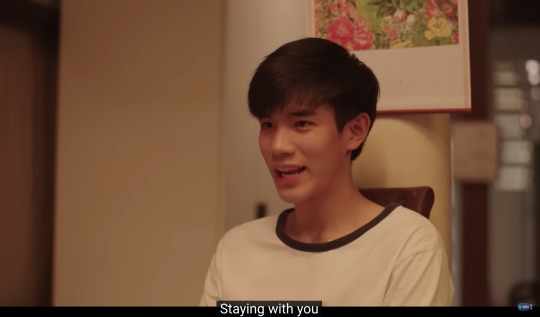
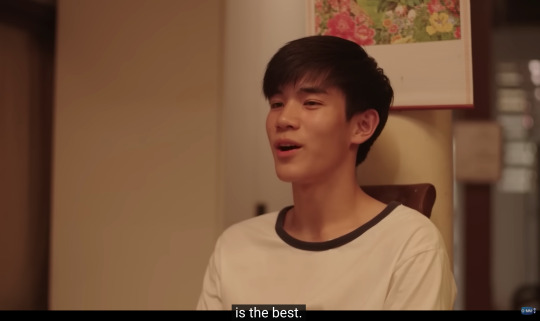

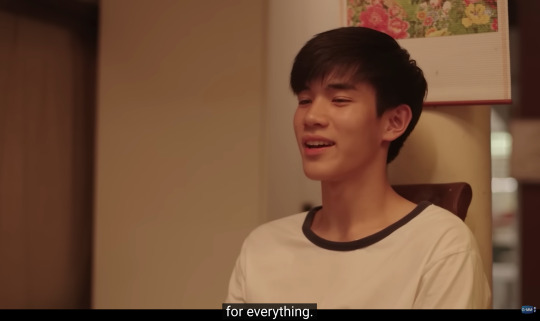
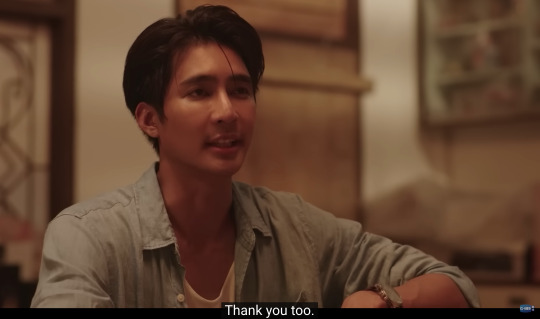


#moonlight chicken#moonlight chicken meta#earth pirapat#fourth nattawat#jim and li ming#asian family units#asian parenting#intergenerational trauma#intergenerational trauma in asian families#backaof noppharnach#thanks for the ask!#i can't stop thinking about this wonderful show#the last time i was like this was after the cherry magic movie#it took me months to let go oh lord
44 notes
·
View notes
Text
The only thing I'd like to add to the discourse is how Pattaya and it's nightlife (?) is a living breathing character in Moonlight chicken . It feels like how in HP hogwarts always protects its occupants, and help is given where it's asked for ; everything ends well .
I've never been to pattaya , but some shots , the making and enjoying of the local cuisine, liming riding his bike in the late night traffic , the festivals bringing people together , the common struggles of people living in and around an area ...
It's such a simple yet very heartfelt loveletter to pattaya , just like the chicken rice . Only minimal ingredients, but still a fulfilling and cozy meal to the hungry working class of pattaya. ❤️
#moonlight chicken#thai boys love series#thai drama#thailand#thai bl series#asian lbgtq dramas#earthmix#aof noppharnach#midnight series moonlight chicken#mix sahaphap#earth pirapat#geminifourth#made so that i miss a town I've never known#when i get there I'm going to walk around the market and spot a gaipa#I'll go get some chicken rice and meet an uncle jim and liming#and I'd probably see a wen dozing offon a sidetable#I'd probably play with a little baby who was born to a brat named saleng and a hardworking mom called praew#idk#it may not be elaborate and flashy and perfect but it's a heartfelt confession of undying love towards a people and their home
30 notes
·
View notes
Text
also this show (i think it's a tv show, imdb is saying it's a tv show) has the potential to be either very good or very bad purely based on time period because, well, they've made harley asian-american, jim gordon is black, bruce wayne is a jewish man, and depending how far they get into his life, he has a romani son and a daughter of east asian descent, all of which are identities that come with a lot of baggage in the 1940s in a way they don't in honestly any other time period and idk if i entirely trust bruce timm to handle that
#personal#batman: caped crusader#like am i reading way too much into a cartoon? yeah probably#but like jim gordon is a black cop in the 1940s that's gonna come with a lot of issues#harley is asian-american in this adaptation (they don't specify it beyond that) so how does she react to anti asian racism#that came from the us's involvement in the pacific theater in the 1940s? is that gonna affect her villain turn? (is joker even in this?)#bruce is a jewish man pursuing vigilante justice while an entire genocide against jewish people is happening one ocean away#that a LOT of people in his country are turning a blind eye to#how does THAT affect him and the vigilantism he participates in?
4 notes
·
View notes
Text
sobbing crying mess at the jim & li ming conversation p'aof im coming for your life 😭
#moonlight chicken#midnight series#vi.txt#sometimes things hit too close to home#jim finally redeemed himself good for him#talking nicely is all we can really expect from asian parents isn't it? what apology#yeah no but when li ming said how is he supposed to love his mom after she shows up after 5 years out of nowhere#yeah no that was the breaking point for me#i see so much of my 18yo in li ming i can't even judge people around him impartially#send help#i can't believe this show will end tomorrow how dare they 😭
28 notes
·
View notes
Text
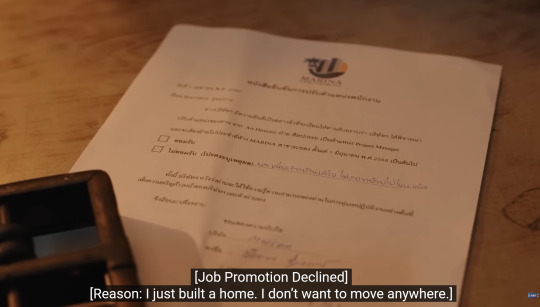
And the dream fulfilled, the promise from the start of the series... a home. A place to come back to that isn't just a place to live but a place to be.
#jimwen#jim x wen#wen x jim#wenjim#moonlight chicken the series#moonlight chicken#thaibl#thai bl#bl series#thai drama#thai series#asianlgbtqdramas#bl drama#asian lgbtq dramas#gmmtv#thai bl series#thai ql#ql drama#ql series
76 notes
·
View notes
Text
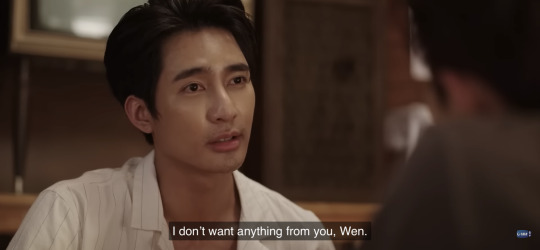
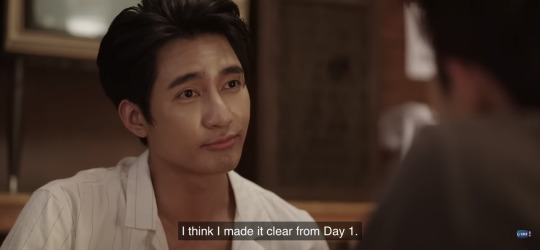

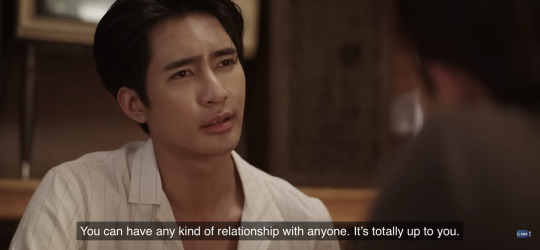
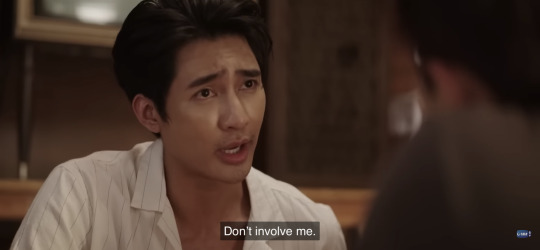

A man that has chosen himself and his peace. Love to see it! 👏🏽👏🏽
#moonlight chicken#thai bl#moonlight chicken ep 5#asian lgbtq dramas#earth pirapat#earthmix#mix sahaphap#li ming#heart x li ming#geminifourth#gemini x fourth#jimwen#jim x wen#alan x wen
51 notes
·
View notes
Text

instead of a shitpost/meme, I just say this: Hey, would you be kind enough to spread the word about my new epic silk road fantasy book? Would you buy a copy please? :)
Available everywhere books are sold
"Crafted with patience, passion, and most importantly, tremendous love. Read R.R. Virdi!"- Jim Butcher, NYT bestselling author of the Dresden Files
"Rich world-building, plenty of action, and devious twists abound. Very highly recommended!" ―Jonathan Maberry, New York Times bestselling author of V-Wars and Kagen the Damned
"R.R. Virdi's The First Binding is engrossing and beautiful, joyous and painful―always entertaining, sometimes profound. This book makes me remember why I love epic fantasy."―Kevin J. Anderson, New York Times bestselling coauthor of Dune: House Atreides
"An epic like no other - grand, sweeping, dramatic, a love letter to fantasy burning with the dust and heat and mythos of South Asia. It reads like magic and tastes like saffron." ―Yudhanjaya Wijeratne, Washington Post bestselling author of the Salvage Crew
#books#bookblr#reading#books and reading#bookworm#bookish#fantasy#fantasy books#high fantasy#asian fantasy#southeast asia#Folklore#folktales#myths#legends#retelling#Indian fantasy#bestseller#salvage crew#dresden files#the dresden files#jim butcher#Kaigen the Damned#Dune: House Atreides#book review#buy this book#tor books#authors of color#indian authors#book blog
2 notes
·
View notes
Text
to be perfectly honest, i’m real tired of mainstream media trying to make people sympathize with racist, abusive little white boys, forcing poc to sit and watch people who look like them be brutalized by said character while yt people sit and eat up their dumb little sob stories. and then we’re just expected to be okay with it because it’s “realistic for its time”, and when we complain about it we’re “overreacting”
i don’t give a fuck if it’s “realistic” y’all’s show deals with 15 year olds with superpowers and inter dimensional monsters and supernatural beings on an episodic basis. nothing about that screams “realistic” to me, so why does realism suddenly become so fucking important when it comes to mistreating marginalized communities.
#this is about stranger things yes#i should have known trusting two cishet white guys was a bad idea#the last time i did that they mixed a hell of a lot of asian and indigenous cultures as if they were one in the same#and went “omg we’re so progressive !!!!”#i’m so tired of people acting like realism is necessary in shows that deal with like fucking zombies#and a fleshy mf who looks like jim carrey’s grinch#“realism” is just a shitty excuse to silence marginalized communities when it comes to shows like this#stranger things
13 notes
·
View notes
Text
2030 Changing World order with New Development Bank and BRICS, how will new world will be like
2030 Changing World order with New Development Bank and BRICS, how will new world will be like
New Development Bank was previously known as the BRICS Development bank. The bank was established as a multilateral cooperation bank by BRICS nations. The NDB’s main objective is to help private-public projects and operations by giving loans, guarantees, and equity to member nations. Further, they will coordinate with international organizations and provide finance and technical assistance for…
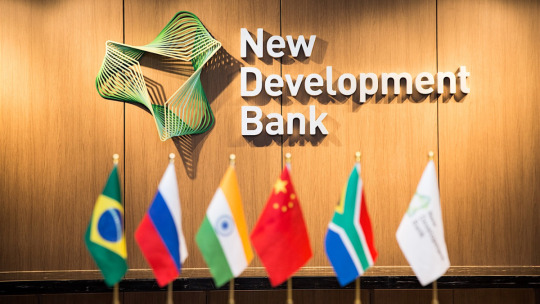
View On WordPress
#asian infrastructure bank#brics#brics 2#brics 2020#brics 2021#brics 2022#brics a#brics bank#brics eu#brics g7#brics group#brics media#brics upsc#brics website#briics#cyberbrics#goldman sachs brics#jim o neill brics#ndb new development bank#new development bank#south africa brics#the brics
6 notes
·
View notes
Note
Hey thanks for mentioning me on your reblog regarding Hainanese Chicken Rice/Khao Man Gai/Nasi Ayam Hainan! So much deliciousness all around; I'd only just eaten and was feeling hungry all over again! 🤤 Can't wait for Moonlight Chicken to premiere... Planning to get some chicken rice for the watch-along. 😋 Will be thinking of you and your posts at the same time!
Oh my goodness, thank YOU for reading and for the wonderful video suggestions! (If folks out there are reading this and are intimidated by making HCR/KMG/NAH at home -- don't be intimidated! It's SO doable.)
(Also, just want to add, since I didn't in my original post, that nasi ayam Hainan is the Malay phrase for chicken rice -- nasi being rice, ayam being chicken, and Hainan being the locale in China where this dish originated.)
Even while I'm saying that this is a totally doable dish for home, one thing I've been reflecting on before the premiere is that when you're at a stall in, say, Kuala Lumpur (KL for the homies) or Singapore or Bangkok -- you don't see the hours and hours of work that vendors expend before they open up and sell out. I kinda wonder if that's going to be implied in Moonlight Chicken -- we'll see.
In fact, speaking of that -- a major reason why I wanted to write so much about khao man gai/nasi ayam is because I want to try to pinpoint, for non-Asian viewers, the incredible cultural crossroads that dishes like HCR/KMG/NAH have on our Asian communities. Like I mentioned in my reblog -- it seems like Earth's character, Jim, is going to get some shit from his people about wanting to be a vendor. (Let alone that he'll be the HOTTEST khao man gai vendor in the HISTORY of the PLANET, but let me leave that alone for a sec, HA) --
Since I haven't LIVED lived in SE Asia, I can't quite comment on the immediate implicit bias that folks in those countries may have towards vendors. What I know, from my side, having been to Malaysia and Singapore extensively in my life, is how we as customers engage with the vendors. We might try to get to a stall at 7 am, before that vendor sells out of the thing they're famous for (nasi lemak, nasi ayam with siu yuk, etc). But I'm not related to the vendor, I'm not family to the vendor. AND, since I don't live in, say, Malaysia -- like, if I saw that vendor at, say, the bank or a department store -- what would be my immediate implicit bias towards that person? Has society conditioned me to look a certain way at a person FOR BEING a vendor?
I'm hoping that Moonlight Chicken offers that commentary, because I'd like to learn it, and I might even ask my cousins about their thoughts on this. But anyway, I wanted to write my khao man gai post because this dish really offers a huge GATEWAY to a slice of SE Asian culture that honestly, we as Westerners are far removed from. Just going to, say, the local pasar malam/night market near your neighborhood in Malaysia. That alone speaks VOLUMES for how one lives their life in SE Asia.
The fact that people will stumble into Jim's place, drunk, eating khao man gai.... that Mix's character will stumble in there, too. What brought him there? (I mean, it's OBVIOUS, duh, but) It's not just Jim that'll bring Wen there -- it happens to also be the dish, and it'll be absolutely understood and implied by the audiences in Thailand and elsewhere in SE Asia that khao man gai is the most delicious and satisfying thing ever to eat after a night out. I wanted to try to get folks to feel that in my post. It has so much cultural significance, I can't even scratch the surface of it. (Sorry, @telomeke, I went on and on again, HA!)
#thanks for the ask!#khao man gai#nasi ayam#hainanese chicken rice#moonlight chicken#it's just the best dish ever and so meaningful to our SE asian cultures#i'm just not talented enough of a writer and researcher to really describe what the dish means to the souls of asians#it means so much#earthmix#jim x wen#wen x jim
8 notes
·
View notes